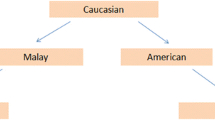Abstract
It might seem that racial profiling by doctors raised few of the same concerns as racial profiling by police, immigration, or airport security. This paper argues that the similarities are greater than first appear. The inappropriate use of racial generalizations by doctors may be as harmful and insulting as their use by law enforcement officials. Indeed, the former may be more problematic in compromising an ideal of individualized treatment that is more applicable to doctors than to police. Yet doctors, unlike police, should not attempt to ignore race altogether. Race and ethnicity are associated with the geography of disease, with social and cultural factors relevant to disease, and, to some extent, with genetic predispositions to disease. Moreover, greater attention to the distinctive health conditions of certain racial and ethnic groups is necessary to make up for past neglect. But it will be a tricky business to steer a middle course between a naïve, reckless, or dogmatic color blindness and a stereotype-driven overreliance on race and ethnicity. In trying to steer such a course, the doctor can only hope for the day when a combination of more individualized genomic medicine and greater social equality will make it possible for her to pay less attention to race and ethnicity without detriment to her patients’ health.
Similar content being viewed by others
Notes
See his article in this special issue of The Journal of Ethics.
References
Foster, M., and R. Sharp. 2004. (Opinion): Beyond race; Towards a whole-genome perspective on human populations and genetic variation. Nature reviews genetics 5: 790–796.
Goffman, Erving. 1963. Stigma: Notes on the management of spoiled identity. New York: Simon & Schuster.
Groopman, Jerome E. 2007. How doctors think. Boston: Houghton-Mifflin.
Hewstone, M., W. Benn, and H. Wilson. 1987. Bias in the use of base rates: Racial prejudice in decision-making. European Journal of Social Psychology 18: 171–186.
Keller, Simon. 2000. How do I love thee? Let me count the properties. American philosophical quarterly 37: 163–173.
Lippert-Rasmussen, Kasper. 2007. Nothing personal: On statistical discrimination. Journal of Political Philosophy 15: 385–403.
Parker, Malcolm. 2002. Wither our art? Clinical wisdom and evidence-based medicine. Medicine, Health Care and Philosophy 5: 273–280.
Smart, A., H. Martin, and M. Parker. 2004. Tailored medicine: Whom will it fit? The ethics of patient and disease stratification. Bioethics 18(4): 322–342.
Smedley, B., A. Stith, and A. Nelson (eds.). 2003. Unequal treatment: Confronting racial and ethnic disparities in health care. Washington DC: The National Academies Press.
Tishkoff, S.A., and K.F. Kidd. 2004. Implications of biogeography of human populations for ‘race’ and medicine. Nature Genetics Supplement 36(11): S21–S27, 526.
Wasserman, David. 1991. The morality of statistical proof and the risk of mistaken liability”. Cardozo Law Review 13: 935–976.
Wasserman, David. 1997. Diversity and stereotyping. Report from the institute for philosophy and public policy Winter/Spring.
Author information
Authors and Affiliations
Corresponding author
Rights and permissions
About this article
Cite this article
Wasserman, D. Is Racial Profiling More Benign in Medicine Than Law Enforcement?. J Ethics 15, 119–129 (2011). https://doi.org/10.1007/s10892-010-9100-0
Received:
Accepted:
Published:
Issue Date:
DOI: https://doi.org/10.1007/s10892-010-9100-0




